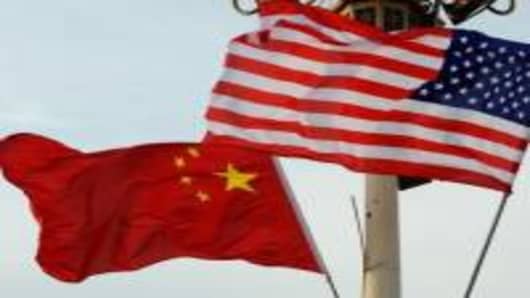As trade tensions between the U.S and China heat up, with both countries filing complaints to the World Trade Organization (WTO) on Monday, experts say the grumbling is no more than posturing in a politically important year for Beijing and Washington and should fizzle out eventually.
Washington on Monday complained to the WTO that China doled out at least $1 billion in illegal subsidies to Chinese auto and auto parts exporters during 2009-2011, helping them beat their U.S. competitors in the U.S. car market, the second biggest in the world after China’s.
China replied with its own complaint, saying Washington had applied anti-dumping and countervailing duties to two dozen Chinese products including paper, steel, tyres, magnets, chemicals, kitchen appliances, and wood flooring.
Trade disputes between the two nations surface from time to time, for instance the U.S slapped tariffs on solar panels made in China in May. Still, strategists say the latest action comes when both countries are struggling with slowing manufacturing sectors in a politically important year.
A U.S. presidential electiontakes place in November, while a once-in-a-decade leadership change in China is expected to take place over the next few weeks. The political backdrop adds “tinder to the fire” when it comes to the trade dispute between Beijing and Washington, says Eswar Prasad, Senior Professor of Trade Policy at Cornell University and Senior Fellow at the Brookings Institution.
“The timing probably has a lot to do with the political season, especially with many battle grounds where manufacturing is very important, coming to play in the U.S. presidential election,” Prasad told CNBC Asia’s “Squawk Box” on Tuesday. “So I think we'll see a lot more of this in the next couple of months but I sense after the elections, the temperature will cool down a little bit.”
The upper Midwestern states have emerged as a key battleground in the U.S. presidential election, especially Ohio, where incumbent Barack Obama will make his case for re-election and announced plans of the WTO complaint against China. Ohio has emerged as the most hard-fought state of all in recent presidential elections, and is also the hub of the American auto parts industry, which has suffered heavily from job losses that have coincided with surging imports of auto parts from China.
But even as the U.S. may complain about China, it has no choice but to continue trading with the country, said Bill Smead, CEO and CIO of Smead Capital Management. China is the second biggest trading partner of the U.S., after Canada.
The trade dispute also helps China distract its citizens from economic problems, including a manufacturing sector that is slowing rapidly, analysts said.
China’s manufacturing sectormakes up between 30 and 35 percent of the economy and a prolonged slowdown in Europe, its biggest export market, has forced the Chinese to look to other markets, including the U.S., which is still continuing to buy Chinese goods.
At the end of the day, rationale and the recognition that trade are crucial to both the U.S. and China will win out, according to Anthony Scaramucci, Managing Partner of SkyBridge Capital.
“I do believe that cooler heads will prevail here, as it relates to a trade war and as it relates to the rhetoric, and lot of things get said in the election season that may or may not get done after the election,” he told CNBC
—By CNBC’s Jean Chua.


